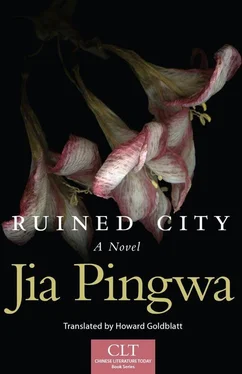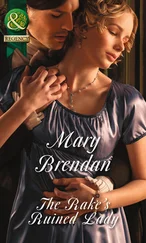“I do know people over there, but is there time to get it into print by tomorrow?”
“The election is the day after tomorrow, so it has to be tomorrow,” Huang said. “It’s all up to you now. A car has been ordered, and I’ll go with you.”
“All right, then,” Zhuang said. “It’s too late to see the editor-in-chief. The head of the layout section is the brother of a friend of mine. I will ask him to insert this in place of something else.” Zhuang wrote down some names of people for whom gifts would need to be bought. Huang told an aide to purchase items such as rice cookers, toasters, and game consoles. “We’re not coming back if the article doesn’t appear tomorrow,” Huang added, when he noticed the look on Zhuang’s face. “Are you busy tonight?”
“Not really. Wait for me here while I go to my room for my satchel.”
“I’ll go with you. You’re such a celebrity that people will stop you if you go up alone.”
“Then I won’t go,” Zhuang conceded with a private groan.
They did not make it back that night. Zhuang’s friend was out of town, so they went to see the head of the layout section and handed over the gifts. The article was accepted, but they had not anticipated that the deputy editor-in-chief, who was on duty that night, would read the mock-up.
“Who wrote this?” he asked. “Why do the contents differ from what was printed in Weekend? What exactly is going on at City Hall? We have to be careful.”
The layout section head returned to his dorm, where Zhuang and Huang were waiting. They went to explain the situation to the deputy editor-in-chief, who replied, “One of you is a senior secretary at City Hall, and the other is a celebrity writer. So of course I trust you. We can run the article, but it may not make it tomorrow. How about the day after tomorrow?”
“That won’t do.” Huang said. “Why can’t you print the one it replaced the day after tomorrow?”
“We’ve already delayed it three days. They sponsored one of our calls for submissions, and the head of the factory has been here three times to complain.”
“Is an item from some factory more important than one from City Hall?” Huang complained. With a combination of reason and threats, he cajoled the man into agreeing to a ten thousand yuan payment. The article was going to make it into print. When they were done, Zhuang thought about Tang Wan’er, who had been waiting for him all this time; he urged Huang to return to the hotel with him, but Huang insisted that they wait to see the final copyedits so he could proofread. The two men dozed in the section head’s office until the copyedits were ready. Huang wanted the headline to be in a larger font, which displeased the section head, who said the typesetters were losing patience. So Huang went out to a night market and bought several cartons of cigarettes, one for each worker in the printing room. He also bought a roasted chicken and a bottle of liquor to share with the deputy editor-in-chief and the section head. The liquor loosened the tongue of the section head, who complimented Huang on his dedication to his job, saying that young men like him were a rarity these days. The man was so enthused that he offered to write an editorial note, and did so. Aided by alcohol, he wrote a flowing note and replaced a short news item with it. Immensely pleased, Huang handed over his business card and wrote down the section head’s phone number, repeatedly telling the man to come see him whenever he needed help. It was after midnight when they had the freshly printed paper in hand; Zhuang was so sleepy he could barely lift his head. Dawn was about to break by the time Huang dragged a sleepy Zhuang into the car to return to the hotel.
Zhuang woke up as the car was passing the nunnery, and said they ought to take a look at the unit while they were in the neighborhood. Huang went up with him to the fifth floor, where they opened the door to a living room plus a three-room unit. It was on the highest floor, so it was quiet. Huang promised to have the Gudu Hotel send over some used furniture, including easy chairs, a desk, a chair, and a bed, along with bedding. Being mostly poor writers and artists, none of them could afford to spend their own money on items like that. Zhuang was thanking him when they heard some people clamoring downstairs, “One more. Give us another one.” Obviously a street artist had set up a stall downstairs. They went down and were surprised to see a group of youngsters surrounding the same old junkman, who was rattling off doggerel:
His hair is a mess as a teen
At twenty, a babe in his arms is seen
In his thirties, a promotion gives life a sheen
In his forties, a muddled and downcast mien
In his fifties, retired and back home to stay lean
In his sixties, to raise fish and flowers he’s keen
In his seventies, he helps China achieve a glorious scene .
With a frown, Huang shouted, “What nonsense are you spouting there, damn you?”
The old man looked up. “Nothing, I didn’t say anything.”
“I’ll have the police chase you out of town if you keep doing that.”
Quickly donning his straw hat, the old man scurried off with his cart, raising his hoarse voice along the way to shout, “Junkman! Collecting junk and scraps!”
Zhuang, who was still coming down from the second floor, missed a step just as he was about to say something to Huang; he fell, rolled down the stairs, and sprained an ankle.
. . .
Three nights and one cast later, he left the hospital, able to hop on his good leg, and returned to the house on Shuangren fu Avenue. His mother-in-law, who was still away for the temple celebration, sent someone back with a message that she wanted to spend more time in the countryside and would return when it cooled off. Niu Yueqing had the messenger stay for a meal while she put some changes of clothes for the old lady in a bundle. Then she gathered up some of her and his old clothes, some socks and hats, and said, “You’re not going to wear these anymore, Zhidie. Why don’t we give them to my cousin? They don’t mind used clothes in the countryside.”
“Do what you want.” Zhuang looked unhappy.
As she walked the man to the gate, she picked up a pack of cigarettes on her way out for him to smoke on his journey home.
“Why the long face when I gave away those old clothes?” she asked when she came back in. “You embarrassed me in front of a stranger.”
“Who’s embarrassing whom? When did you ever talk to me before giving things to your relatives? You always do it in front of people, so how could I say no?”
“Am I the only one who gives things to relatives? Listen to your conscience when you say things like that. Don’t people from your family in Tongguan come here all the time? Sightseeing, going to a doctor, doing business, pursuing a court case, you name it. We put them up and feed them, and have I ever mistreated them? Your mother’s brother and your aunt’s son-in-law come to borrow money and never ask for anything less than two or three thousand. I give them the full amount, plus change, knowing full well that we’ll never see the money again. It’s like throwing meat buns at dogs, but have I ever said no? Do you know why young girls in Xijing these days don’t want a husband from the countryside? To avoid that kind of trouble.”
“Are you finished?” Zhuang flung out his hands. “I have enough trouble already.” He struggled out of the chair and went into the bedroom on crutches. Niu Yueqing’s anger faded once her husband had stormed off, and after a momentary pause, she called out for Liu Yue to pour a glass of sour plum juice. She motioned toward the bedroom with her lips, signaling for the girl to take the juice in to Zhuang. But when Liu Yue was heading that way, Niu Yueqing took it from her and walked in, while the girl stood by the bedroom door.
Читать дальше


![Matthew Vincent - [you] Ruined It for Everyone!](/books/216429/matthew-vincent-you-ruined-it-for-everyone-thumb.webp)









